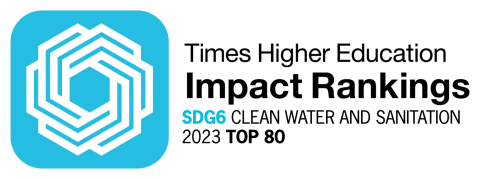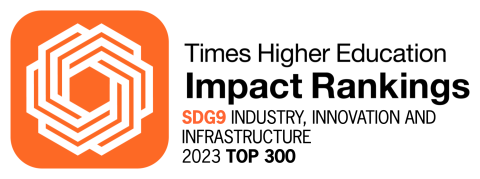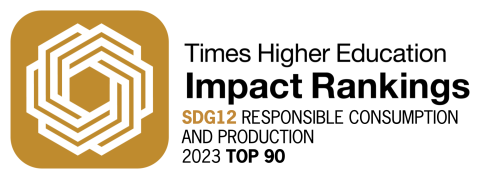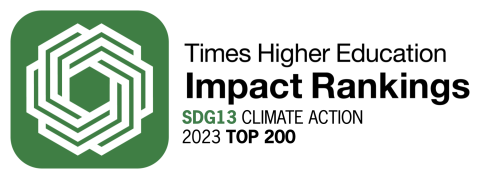As of January 1, 2021, the research team Water, Resources, and Territories, is associated as a partner to the research unit Hydrosciences Montpellier (HSM) - UMR CNRS 5151, UM, IRD (UR 050)
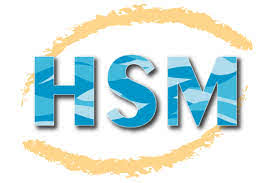
General presentation
The ERT team "Water, Resources, Territories" is interested in continental water as a fundamental factor of development of societies. The main theme of the team is water: resource or danger for human societies.

As of January 1, 2021, ERT personnel have joined the UMR HydroSciences Montpellier for the research component of their activity, in the ContEm (Emerging Contaminants), HEC (Hydrology, Ecohydrology, Climate), Hytake (HYdrogeology and Transfers in Karstic and Heterogeneous Aquifers), PEnSTer (Pollutions Environment Health Territories), and Physe (Hydric Health Environment Pathogens) teams. The quality of the actions undertaken in the field of UNESCO's sustainable development objectives by the ERT team, in relation with its industrial, public, and academic partners, has enabled IMT Mines Alès to be ranked 47th in THE 2020 ranking of higher education establishments, for its actions corresponding to the United Nations' sustainable development objective n°6: "Clean water and sanitation".
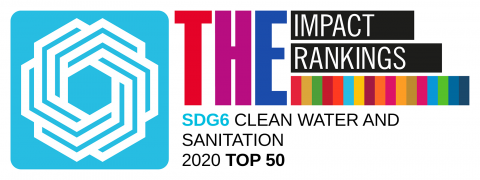
In the field of water and the environment, several research projects have been set up via co-supervision doctorates with countries in the South, and take as their object of research various environmental situations of these countries: Turkey, Ivory Coast, Niger...
Staff
ARTIGUE Guillaume, Lecturer-researcher, see the CV HAL
BLACHERE-LOPEZ Christine, Research and development engineer
CERCEAU Juliette, Lecturer-researcher, see the CV HAL
FAYOL Noémie, Lecturer-researcher, see the CV HAL
JOHANNET-BERTIN Anne, Lecturer-researcher, HDR, see the CV HAL
JUNQUA Guillaume, Lecturer-researcher, HDR
LESTREMAU François, Lecturer-researcher, HDR, see the CV HAL
LIN Liming, Lecturer-researcher,
LOPEZ-FERBER Miguel, Lecturer-researcher, HDR
SAUVETRE André, Lecturer-researcher, see the CV HAL
VINCHES Marc, Lecturer-researcher, HDR, see the CV HAL
RESEARCH TOPICS
- Objectives: To understand the interactions between human activities and environment crystallized around the rivers, to put in capacity the local actors to adapt their strategies of territorial development in adequacy with the local environmental conditions.
- Challenges : Integrate environmental sciences (quantitative analysis of flows, substances, impacts) and human and social sciences (qualitative analysis of stakeholder games, territorial representations) to assess the impacts and resilience of territorial trajectories.
- Contacts: Juliette Cerceau (juliette.cerceau@mines-ales.fr), Guillaume Junqua (guillaume.junqua@mines-ales.fr), Miguel Lopez-Ferber (miguel.lopez-ferber@mines-ales.fr), Noémie Fayol (noemie.fayol@mines-ales.fr), Pierre-Alain Ayral (pierre-alain.ayral@mines-ales.fr).
- Objectives:
- To establish a diagnosis on the level of contamination of water resources (persistent pollutants, pathogens, toxins...) ;
- To study the degradation/fate of contaminants in the environment;
- Identify the long-term impact of contaminants on the environment and health.
- Challenges: development of bioreceptors on electrical transducers, and passive samplers integrating over long periods of time in marine or river environments.
- Contacts: Catherine Gonzalez (catherine.gonzalez@mines-ales.fr), Sylvie Spinelli (sylvie.spinelli@mines-ales.fr), Liming Lin (liming.lin@mines-ales.fr), Murielle Avezac (murielle.avezac@mines-ales.fr), Marine Bertrand (marine.bertrand@mines-ales.fr)
- Objectives :
To model hydrosystems in order to (i) better understand them at different time and space scales, (ii) estimate the resource, (iii) forecast floods and low water levels in relation with operational partners
- Challenges:
- Hydrogeological processes are generally complex: non-linear, heterogeneous and anisotropic;
- Environmental variables are fraught with considerable noise and uncertainty accentuating the difficulty of data-driven learning.
- Contacts: Anne Johannet (anne.johannet@mines-ales.fr), Guillaume Artigue (guillaume.artigue@mines-ales.fr), Marc Vinches (marc.vinches@mines-ales.fr), Pierre-Alain Ayral (pierre-alain.ayral@mines-ales.fr)
- Objectives: to reduce phytosanitary inputs, particularly through biological control. To develop viruses, non-pathogenic for humans and the environment, capable of destroying crop pests.
- Challenges: to improve viral strains and their diversity in order to optimize the action of viruses, to study the fundamental processes of virus dissemination in host cells.
- Contacts: Miguel Lopez-Ferber (miguel.lopez-ferber@mines-ales.fr), Christine Blachère-Lopez (christine.blachere-lopez@mines-ales.fr)
Publications
Consult the team's publications Consult all IMT Mines Alès publications Consult the publications of the Hydrosciences laboratory
Partnerships
- UMR HydroSciences Montpellier, integration for the research component of the activity of ERT's teacher-researchers, on January 1, 2021, in the teams
- ContEm (Emerging Contaminants),
- HEC (Hydrology, Ecohydrology, Climate),
- Hytake (Hydrogeology and transfer in karstic and heterogeneous aquifers),
- PEnSTer (Pollution Environment Health Territories),
- Physe (Hydric Health and Environment Pathogens).
- ONEP - Abidjan, Ivory Coast: training of scientific executives of ONEP (Office national de l'eau potable) in Abidjan, Ivory Coast. The purpose of ONEP is to provide the State and local authorities with assistance to ensure access to drinking water for the entire population, as well as to manage the State's public and private assets in the drinking water sector. IMT Mines Alès organized a training module on "Methods of analysis and measurements of organic pollutants" for three executives of ONEP's LAQUE laboratory who wanted to acquire new skills in the field of organic pollutant analysis in water (extraction methods, analysis methods, quality assurance).
- UQAT (Université du Québec en Abitibi-Témiscamingue), as part of the CNRT contract in New Caledonia.
- Oumar El Farouk MAMAN-ILLATOU: "Spatio-temporal characterization of arsenic in the Liptako-Gourma aquifers: evaluation of the anthropic impact related to mining, consequences on the exposure of populations, and definition of intervention strategies". Thesis co-supervised by IMT Mines Alès - Abdou Moumouni University of Niamey, Niger.
- Cagri Alperen INAN : " Flood forecasting by artificial neural networks : evaluation of the contribution of data assimilation for applications to Cevennes rivers ". Thesis in co-supervision IMT Mines Alès - University of Muğla, Turkey.
- IM2E and UNESCO International Center
In October 15, 2020, the tripartite agreement between UNESCO, the Ministry of Higher Education, Research and Innovation and the University of Montpellier formalized the creation of the International Centre for Interdisciplinary Research on Water Systems Dynamics (ICIREWARD, Montpellier). This is a major recognition for the water science community, which has been led since 2015 by the Montpellier Institute for Water and the Environment (IM2E) and has received a boost from the MUSE I-SITE. The LGEI research center has been working closely with the Montpellier university cluster for several years, participating actively in the governance of the Mediterranean Institute for Water and the Environment (IM2E), the KIM WATERS project (I-SITE MUSE), and now the UNESCO International Center. The scientific themes carried by the UNESCO International Center are fully consistent with the multidisciplinary research activities of the LGEI, focused on water quality diagnosis and integrated resource management in river basins. The UNESCO International Centre in Montpellier will strengthen our national and international partnerships in various fields: development of sensors for water quality diagnosis, hydrology, artificial intelligence, modelling and decision support tools. - ZABR and Cévennes River Workshop Site.
The Rhone Basin Workshop Area (http://www.graie.org/zabr/index.htm) "brings together 24 research establishments, which address, through different disciplines, the interactions between the Rhone river and peri-river environment and the societies that develop in the watershed. It supports multidisciplinary research programs intended to provide elements for public decision support in terms of sustainable management of rivers and their watersheds." The ZABR depends on INEE and is also associated with OZCAR.
Within ZABR, members of the ERT team helped create a new workshop site in 2015-2016: the Site Atelier des Rivières Cévenoles. It is one of the co-pilots with the UMR ESPACE and the Ecole des Mines de Saint Etienne. For several years, the team has been involved in multidisciplinary projects financed under the framework contract with the RMC Water Agency. In particular, this involvement allows the initiation of participatory science works. - Cévennes National Park
The CREER is strongly involved in the Cévennes National Park through its participation in the scientific council that supports the national park in its activities of knowledge and monitoring of the natural and cultural heritage of the territory. (https://www.cevennesparcnational.fr/)
